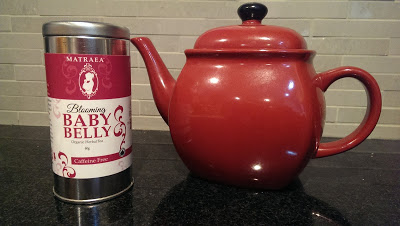
by MotherWit | Mar 24, 2017 | Birth, Parenting, Sleep, Uncategorized
As a certified infant sleep educator, the more I develop my Sleep Essentials workshops and the more I talk about this work in my community, the more apparent it is that those who work in this field need to tread with exquisite care of the Parent Soul. Nobody is at the receiving end of unsolicited advice more than new parents, and this can erode confidence and lead to stress. Taking an encouraging and nurturing approach rather than one wrought with opinion and judgement keeps our minds open to what support parents are really yearning for.
Babies are primal. Nobody has told infants that the Industrial Revolution took place and radically shifted the way human beings sleep. They didn’t get the memo that independent sleep is something that is wanted of them because of the busy daytime work schedules of their parents and the fact that we don’t live and work tribally anymore. Babies seem to want more from us around the clock than often feels sustainable to give. This is their primal nature. It has been their way for longer than we can say.
Parents are modern. Most of us are enculturated to the relatively new 9-5 work schedule the world tends to revolve around now. We were raised that way. And, as culture does shape us biologically, it makes sense that parents need to fit their sleep into a 7-9 hour period sometime between the punch out and punch in, not to mention get a little space to breathe after their day job duties, whether they are working outside of the home or working in the home doing business or tending to children).
Families are tired. Oh, are they ever tired. As a mom of four children who glued themselves desperately to my body every time I tried to extricate my arms from our embrace, I know this well. There were times I lay in bed with a toddler clamouring for my breast for the 14th time that night, wondering if I should “Ferber-ize”, worrying about how I was going to face the day on no sleep. I wanted to run away from this insane feeling dynamic that appeared terribly broken, and clearly all my fault for creating such a clingy, dependent little person (cuz mom guilt).
So where does the proverbial ‘twain meet? In this wide gap between a primal baby’s and a modern parent’s needs, where does a sane solution lie to the very real problem of family exhaustion?
There are lots of people wanting to tell you. There are many approaches, counter approaches, studies and rebuttals, experts and proselytizers wanting to shape you with their two cents. How do we discern the correct approach for our unique families? How do we get our needs met and be great parents too? What is the “right” thing to do?
Let us look at different sleep approaches. There are classic sleep training methods, which are about conditioning a baby to stop crying out for their parents when it is time to sleep. While the intention is to fulfill a biological and psychological need for more family sleep, the approaches are rooted in Behavioural Psychology. It makes very logical sense. If your baby cries for you after a certain time, you know they aren’t hungry or wet, it may just be a cuddle or nipple “habit” that motivates the “calling out” behaviours. In which case, habits can be changed. Methods are implemented over time, generally involving some to a lot of crying from your baby in protest. But for a good many parents, the few nights of howling and distress (as much as they hate it), feel worth it for the sake of more sleep for everyone, more family harmony, and a sense of shaping good sleep “manners”. Of course that sounds appealing!
The shadow side of some sleep training approaches? They are often sold as something necessary and expected to do (or else Baby will be spoiled), mired more in cultural biases than scientific evidence, create more family stress than we anticipate, and according to some studies, have a low long term efficacy rate. Despite possible misgivings at letting their babies cry-it-out, parents will often resort to anything that might work, and sleep training is logical. Not a parent in the world can be blamed for wanting to try something that could work.
We have the Attachment Parenting approach, which is rooted in Developmental Psychology, and is all about heeding that natural call for connection babies have around the clock well into early childhood. Proponents refer to the difficult biological implications of the unmet distress in a rapidly growing little brain and advocate not allowing babies to cry it out as a means of learning sleep hygiene. When looking at the workings of a baby’s brain and their reasoning capabilities (or lack thereof), it also makes perfect sense why we would NOT want to discourage attachment and the tending to a baby’s cries rapidly in the night.
The shadow side of a fully baby-led attachment approach within a culture of social isolation? Babies will, left to their own devices, very often nurse or want cuddles multiple times throughout the night well into toddlerhood. While it may be developmentally normal and security building, if the family is chronically sleep deprived, this is a remarkable burden upon relationships and health which can ultimately detract from that security. “Our culture is messed up, not our babies.” may be true from a sleep evolution perspective, but it doesn’t solve the problem of meeting the family’s crucial need for more rest to function in today’s very real world.
With all the information out there, it feels damned if we do (have babies who don’t cry for us but who may be in cortisol driven “shut down” rather than “self-soothe” mode after nights of prolonged crying it out) and damned if we don’t (having babies who cry to be rocked, cuddled, and nursed multiple times at night when we have to work the next day, maybe ‘til well past the age of two, rendering everyone frustrated, exhausted, and edgy).
What the heck do we do?!
Firstly, education and preparation while still pregnant or in the early days of parenting is one of the best ways to get ready for the reality of an infant’s sleep needs. Dissonance occurs when our expectations don’t meet our reality. So understanding how Baby’s brain functions at different levels of development is very helpful, as well as things you can do to create wonderful sleep associations for Baby right from birth. Advice to take whatever information you like, leave the rest, and do what feels right for your family is an approach you might want to look for when seeking your educational resources. Making informed choices feels empowering, and that’s a good feeling for new parents.
In this wide gap between the needs of primal babies and modern parents, MotherWit Sleep Essentials stands with Empathy (this is one of the three “E”s of our GoToSleeep Principles). Why? Because it’s vulnerable there. We know with certainty that every parenting decision made in regards to sleep is and has always been done with the utmost care and concern. This will always be assumed. People who sleep train their kid aren’t harsh or callous any more than people who are nursing 10 times per night aren’t pushovers raising an adult who will still be in their bed until college. Parents fear being all those things and yet none of them are true. We know well that constant battle between the heart and mind and witness it as an expression of your tender parental love. We have been there too.
So how can we help? By not judging you, for starters. We take a compassionate look at the sleep needs of a family holistically, checking in on things like diet, stressors, routines, levels of self-care, emotional well being and the home layout. With this information and “making changes” coaching, we create customized strategies that promote better rest which include cool things like shaping neural pathways with multi-sensory input. By respecting and caring deeply about a baby’s primal needs AND the modern parent’s needs, we have learned that balance and flexibility are the keys to unlocking sleep potential.
MotherWit Sleep Essentials provides information on the science of infant sleep and support for the art of parenting.
Sleep well, Gentle Parents.
Love,
Lesley

by MotherWit | May 9, 2016 | Uncategorized
Having worked with obstetric, postpartum, and NICU nurses over the last couple of decades, I can honestly say that aside from the birthing/new mothers, nurses are the hardest working folks in the hospital. I have developed amazing relationships with many of my local nurses over the years. Honestly, having seen many a nurse catch a quick baby with skill and compassion when a doctor didn’t get there in time, I know the whole system would fall apart without the skill and compassion of nurses.
These are my top reasons for wanting to shout out my love and appreciation to nurses this National Nursing Week.
1) Nurses tend to REALLY understand birth
Because OB nurses spend far more time with a woman in labour than other medical folks, they usually have pretty developed Spidey senses when it comes to birth, While a new medical resident may be apt to say things like, “You were 4 cm dilated only twenty minutes ago, so according to the progress of labour charts, it’s not possible you want to push now,” a nurse will rush around preparing the room for delivery, knowing that the sounds the mother is making means Baby isn’t waiting for any chart.
I have seen doctors walk into the birthing room brusquely to ask questions of the birthing mother, and witnessed the nurse put up her hand and say, “Wait, she’s having a contraction…let it end first before talking to her.” They get it.
2) Nurses set the tone
Nurses have immense power in the birthing/postpartum/NICU room. When oxytocin flows in a relaxed way, birth and motherhood often unfold more smoothly. When a nurse has respect for the birth/early parenting process and the family, no matter how the situation unfolds from a medical perspective, women often remember the FEELING of being tended to by a caring nurse. They carry that feeling in their hearts forever. Even if the doctor on call that day is busy and doesn’t take the time to connect while they do their medical tasks, the parents don’t take it personally as long as the nurse meets the basic love and connection needs of the oxytocin besotted family. Nurses have the opportunity to serve as the crucial emotional anchor,
Years after birth, reflecting upon their hospital experiences, my clients will go all melty and gooey when they speak of the nurse who was a kind presence in the room. They will call her by name and use adjectives like “angelic” and “saintly” when describing her. If nurses could only fathom the amount of love their happy patients carry for them, based on the few hours they spent together during the peak transformational experience that is the creation of a family, they would glow brightly with that beautiful sense of meaningful service.
3) Nurses are some of the hardest workers in town
Where I live, we generally do not have one on one nursing care when a woman is in labour or with her new baby. A nurse may have two or three patients with intense needs at the same time. When things get really busy in their department, you will literally see nurses jogging from room to room.
I’m always quite amazed to see the nurses, some of them far older than I am, break apart the delivery bed and set things up with remarkable strength and speed. As a doula, I know that supporting women in birth is a very physical job, and nurses do this ALL the time.
A nurse, in the midst of dramatic birthing or new parent/ baby moments, manages all her clinical tasks at the same time as listening to and supporting her frightened patient. This is no easy feat. To have head and heart engaged at the same time in the unique way nurses do, takes a level of skill I bow to.
I have also seen many nurses stay at a birth or with a tiny new patient an hour beyond their shift, because they knew their patient or little patient’s parents were attached to them. They committed to seeing them through until things settled. In the throes of labour or worry, many parents don’t notice their nurse is there after her shift has officially ended. But I notice.
4) MacGyver has nothing on nurses
If you want to be really impressed at the comfort measures that can be whipped out of thin air for in a pinch, come see a nurse in action. I learn really cool tips from nurses constantly, like how to make a super efficient heating pad out of a wet towel and a placenta bag, or an ice pack out of an examination glove, or a peanut ball out of a stirrup and a pillow. The fact that as a doula I carry very little with me in my bag besides mouthwash and a change of clothes is because nurses have taught me the art of comfort measure innovation.
Where I live, supplies can often be low. I have seen Baby’s first diaper be made out of a Chux pad and medical tape by a savvy and apologetic nurse. I have even seen nurses think to place a blanket near a sunny window (if the blanket warmer is busted) so it will be toasty and cozy for Mom and Baby after birth.
5) Nurses are Grace under fire
When a hospital staff runs smoothly as a team and everyone gets along, this is obviously the ideal situation for everyone. But I have witnessed shabby treatment of nurses sometimes by other staff members, or by those who manage them. And, let’s face it, not all patients are easy going and appreciative. Or, a nurse at any given moment may be reeling from a recent tragedy. As professionals, most nurses don’t let on to their patients that they’ve experienced something crappy. They dive into their work, and hopefully process it all later. I have sometimes walked out of a birthing room to get a coffee and beheld a nurse having a private teary moment in a stairwell.
Nursing can be a high stress, high drama job at times. It can be common for people to lose their tempers when challenged. In my experience, it is usually the nurses who do the best job of keeping their cool. They usually manage to continue their compassionate care of their patient no matter who is acting out that day.
The moments that have touched me most as a doula in regards to nurses are when their Grace comes through in the most human of ways. When a birth is clearly traumatic to a mother, or if a mother has experienced less than glorious treatment by other staff members, or if there is a tragedy, I have sometimes witnessed nurses enfold their patients in their loving arms and share tears of sorrow with them, honouring their patients with their silent acknowledgement of sad truths.
To all the nurses who work with birthing and new families, I bow to you in honour for what you do. I see you as you go about your jobs, and you have my respect and regard. May all of you be plied with wine, chocolate, massages, and love this week. I am grateful for you. I celebrate you. We at MotherWit Doula Care say THANK YOU!
Love,
Lesley

by MotherWit | May 7, 2016 | Uncategorized
Are you Pregnant? Have you given birth within the last few months? I want to ask you a question many people, your doctor included, may not think to ask: how are you REALLY doing?
Recently I spoke to a lovely pregnant mama in a doctor’s waiting room. As a doula for 22 years, my Spidey senses told me something was up. I initiated some general conversation, and after a while asked her mom-to-mom about how she was feeling . A shadow fell across her face. “Well, you know, okay I guess.”
“Yeah?” I responded, and waited. And breathed. In a small voi
ce she said, “Not so good. Everyone keeps telling me it’s just hormones, but it’s not passing. I’m unhappy. If it’s like this now, I’m afraid of what will happen when the baby comes. Can you get postpartum depression BEFORE the baby is born?”
The woman agreed to my gentle encouragement to speak to her care provider about getting a referral to a mental health professional, just for a check in. If we have blood pressure or blood sugar issues in pregnancy, we get checked out. Mental health care should be as easy and accessible to perinatal women as a childbirth ed class. It sadly isn’t, but that’s another blog.
In honour of Mental Health Week here in Canada, I want to shed light upon the fact that up to 20% of women experience anxiety and/or other mood disorders like depression in the time surrounding the birth of a baby, making mental health challenges among the most common complications of childbirth. It can happen postpartum AND in pregnancy.
When a woman experiences feelings of sadness, overwhelm, panic, intrusive thoughts, obsessive-compulsive issues, and/or anger (among others), she may be reluctant to share what’s going on for her. She can be afraid people will think she’s about to harm her baby or herself, and take the baby away from her. She often thinks her feelings are a character flaw, and that if she were a “better” person, she could pull it all together and be a “good”, happy mom.
While in some cases thoughts of self-harm/harm to the baby turn into reality, the vast majority of women will not experience this extreme. But left untreated, mental health crises can and most certainly do arise, which make life feel unmanageable. While maternal death is very rare in developed nations, suicide remains among its leading causes. Any time someone feels at risk of harming themselves or their baby, this is an EMERGENCY, and must be treated as such.
Many women feel shame for being overwhelmed or apathetic when their pregnancies/babies are healthy. There is a stigma around mental illness in general which deepens when it comes to motherhood. If there appears to be nothing to complain about, many women feel guilty about expressing their pain.
But there is good news. To quote Postpartum Support International, “You are not alone. You are not to blame. With help, you will be well.” www.postpartum.net
A doula, being a trained, experienced birth/parenting support professional, spends ample time with her client, and can often recognize some of the signs that something is amiss. She can ensure the mother gets the help she needs as soon as possible. Because the sooner the mother feels better, the more space she has to enjoy her pregnancy and her baby, which is healthier for the family long term. We want to ensure a mental health professional can intervene before a downward spiral potentially happens. Even though wait times to see one can be inappropriately long, feeling like something is done can be a relieving first step.
These are five ways doulas can help when it’s beyond “the blues”:
1) Doulas Listen
As a doula, I get to know the people in my care. I listen deeply not just for the words said, but for the feelings behind the words. I’m not afraid to ask, “Hey, how are you really feeling today?” and am comfortable not glossing the spaces over with chatter.
If the mother is receiving messages from her friends and family that her feelings will pass, that it’s “just pregnancy hormones” or “just the baby blues” even though her anxious/depressed feelings are persistent, we may be the only ones to speak up and say, “maybe this requires further investigation. Why don’t we call your midwife and you can tell her what you’ve been sharing with me?” Or, “I have the number of an amazing psychologist who specializes in perinatal mental health. Why don’t we call her right now for an appointment?”
A diagnosis made by a qualified mental health professional is important to get the ball rolling in the exploration of treatment.
2) Doulas Provide Resources
Professional doulas tend to be very community minded folks, and are well connected to the available maternity support resources. A doula can share information about the importance of the woman contacting her care provider, and then help her follow up on the doctor’s referrals to the appropriate mental health professionals. A doula herself will often have a list of psychiatrists or psychologists who specialize in perinatal anxiety and mood disorders, and can share these resources with her client.
A doula will also have resources for extra support while the mother is waiting to see her mental health professional, or is in treatment. The mom may be interested in seeing a massage therapist, nutritionist, or joining a support group for other moms going through similar things.
3) Doulas Provide Respite
Many doulas are trained/experienced in providing respite for struggling families, throughout the day or the night. Feelings of isolation and inadequacy can make mental health struggles worse, especially when they’re compounded by the exhaustion of the postpartum period.
A postpartum doula can help mothers feel like they have a handle on things while she supports feeds, keeps the mom company, and tucks her into bed where she can rest secure knowing the doula is keeping Baby happy. Or, perhaps Mom might need time with her baby and a little tidying or meal preparation done while she relaxes and bonds.
A doula always seeks to support bonding and to foster a sense of confidence and mastery in new parenthood. Occasional respite care can make all the difference when the mother is getting treatment or waiting to.
4) Doulas are on the Family’s Side
Unsolicited advice is the bane of the pregnant/new parent’s existence. Everyone wants to tell them where it’s at. Your baby should sleep through the night at birth, you should be planning an all natural delivery, you should have an epidural, you should start your baby on a bottle right away, you should breastfeed exclusively. Parents can feel like they’ll never do anything right, which can weigh heavily on a person experiencing mental health challenges.
Doulas are there to provide parents support for their choices. Period. A family’s life isn’t played to the tune of any personal doula agenda. Doulas most certainly provide parents with evidence based information, giving them more tools with which to make informed choices, however, they know that things must work for the ultimate health and well-being of the family. When parents have explored their options and made a decision that contributes to the family’s happiness (which generally contributes to Baby’s well-being too), the doula will support them.
5) Doulas Honour Mothers
In our fast paced Western culture, we are often so busy trying to do everything “right” by finding the best information, we often forget to slow down and pat ourselves on the back for growing/birthing/parenting a new little citizen as best we can. We are all already whole. It’s just that when things feel overwhelming, we forget. Your doula will not forget.
As a doula, one of the things I try to do for people is uplift them with the honour I have for them. Sometimes I will look at a mama with a new baby, tears of overwhelm streaming down her face, and I will hold her gaze for a while, seeing her in her wholeness (even when she can’t see it herself). I see her tender vulnerability as well as her wild mama strength . “I see you,” I’ll say. And I will smile at her with my whole heart to show her that I uphold her as worthy an beautiful, letting her know that I believe in her. Reflecting someone’s wholeness back to them helps them to remember who they really are.
You are not alone. This is not your fault. With help, you will be well.
With love,
Lesley

by MotherWit | Apr 28, 2016 | Uncategorized
It is 4 am. You have given birth recently, and are still in the process of recovering from that major event. Feeding your baby isn’t easy. You aren’t sure if you’re doing things right. Your baby just doesn’t seem to be like the books say. There is conflicting advice everywhere you turn. Getting enough to eat is challenging enough, never mind getting the endless laundry done.
You’re leaky, you’re emotions are all over the place, and you’re feeling just a bit overwhelmed.
There is help available! Have you ever heard of a “postpartum doula”? Don’t worry, most people haven’t! Many people associate the word “postpartum” with “depression”, but it actually simply refers to the period of a few weeks after the birth of your baby. And “doula”? What the heck is that? In a nutshell, postpartum doulas are women who, after your baby is born, come to your house and take care of you so you can relax and bond with your little one.
Tired? Kick back! Doulas will hang out with your baby so you can get some sleep. When you wake up, your dishes, or some other household task that is driving you nuts will be done. Hungry? They’ve got it! Doulas can bring you yummy meals or prepare snacks for you. Feeling disorganized? No worries! They can set up systems to ensure things flow more smoothly for you. Do you have older kids? Doulas love kids! Doulas can entertain them if you need time with Baby. Feeding challenges? They can help, and provide resources if necessary. Overwhelmed or have feelings about your birth? It is normal! Doulas can listen. REALLY well, and without judgement, acknowledging and supporting your feelings. Aches and pains? They have suggestions to promote healing, and can provide some holistic support and nurturing touch, honouring the beautiful job the exhausted new mama is doing.
Partners also benefit from the support of a postpartum doula. They are often expected to pick up all the daily slack while the new mother is busy with baby care and healing from birth. The care of a doula can also bring them relief, reducing stress and allowing them to take more time to rest and bond with their baby.
Do postpartum doulas ever do overnight work? You bet they do! The first few overnights at home with your new baby can be daunting, and doulas support your nighttime parenting needs until you feel confident.
Your baby was born months ago, but you feel like you never got settled. Can a postpartum doula help? Of course! Our services are not limited to newborns.
“Postpartum doulas are like your mom but without the baggage!” -MotherWit Postpartum Doula Millie Tresierra
Postpartum doulas don’t breeze in spouting “expertise”, adding more information to your already overloaded brain, though they do know when to call the experts in. Doulas make you some tea and ask you what you need in terms of information, comfort measures, and emotional support. They trust, even if you’re not feeling sure yourself, that you know what is best for you and your baby, supporting you to make empowered mothering choices.
The sight of your postpartum doula coming through the door bearing snacks, encouraging words, and a strong shoulder to lean on is a sigh of relief in your busy day.
Postpartum doulas are experienced in meeting the support needs of new families with knowledge, wisdom, and kindness.
Overwhelmed? We’ve got you.
Love,
Lesley Everest
www.MotherWit.ca

by MotherWit | Feb 15, 2016 | Uncategorized
As the owner of a couple of doula agencies and a doula trainer who teaches around Canada, I often get approached by lovely folks who are interested in introducing their products to me, asking if I can give them a shout out.
I could not resist when when I was contacted by a small, Vancouver Island product company named Matraea. Co-founded by midwives Kate and Selina, they identified a lack of access to safe, effective, natural products to support pregnancy,birth, breastfeeding, and babies in their community. Like the go getters they are, they took it upon themselves to remedy the problem.
These are women after my own heart…deeply experienced, fiercely committed to excellent care of the hundreds of families they’ve served over two decades, and hubs of their community. I readily agreed to test out some of the products Matraea sent over here to the MotherWit HQ here in Montreal.
When the package came in the mail all the way from BC, I was impressed just by the look of the products. They are beautifully packaged, something anyone would be proud to offer a loved one as a gift, or use themselves. I felt great being able to provide something so pretty to my clients.
Let’s start with Blooming Baby Belly Tea. Full of deeply nourishing herbs like raspberry leaf, nettle, and hibiscus packed in a cute little tin, I thought this would be a perfect treat for my Birth Essentials Prenatal Class. I made a pot and had it steeping before my class arrived. When they came into the room, I got a few comments on how nice the tea smelled.
My class members all tried the tea. The dads, too. Quickly, the pot was finished. So I made another. By the end of our time together that day, three pots of Blooming Baby Belly Tea had been drunk, clearly having been enjoyed thoroughly.
I often talk about the deep, nutritive benefits of the herbs in this tea. The issue is that many pregnant folks don’t like the taste, Combined with tasty ingredients like cinnamon and hibiscus, however, Blooming Baby Belly Tea makes getting the proven benefits of the herbs easy and enjoyable. This doula loved it too!
I also received Matraea’s Calming Spritzer and Refreshing Spritzer. I popped them into my birth bag and used them with one of my labouring clients whom I knew enjoyed aromatherapy. As a doula, I use essential oils a lot for balancing out the environment to support the birth. Having some of my favourite oils premixed in such a pleasing way was handy.
I liked the texture of these sprays a lot. Many times just water and oils don’t mist well, but these sprays misted really nicely and dispersed well, having a soft quality. And oh, the scents! Heavenly!
The refreshing spritzer was perfect after a long night of labour. I sprayed it in the room to greet the sunrise, and the birth attendants perked up. It smelled like Christmas morning, soft and uplifting, absolutely right for a birthing. The labouring mother mentioned that it make her upset tummy feel better, too.
During a couple of anxious moments, I kept the Calming Spritzer going. It was actually a hospital staff member who commented on how good the room “felt”. Scent is a powerful thing. I have often found mixes containing ylang ylang essential oil can be very strong, but this was balanced out perfectly so that it was gentle and soothing.
What I appreciated most about Matraea products? You can feel the love and care tucked into them. They are crafted to nourish families and to make them happy. I can get behind that.
MotherWit loves Matraea!
http://www.matraea.com/
Love,
Lesley






